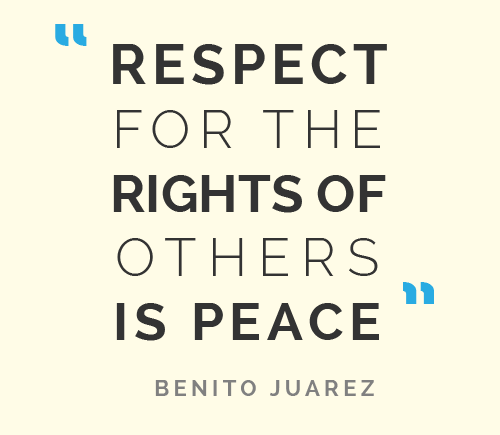warfare
Congolese Warlord Arrested in Paris
One of the first news stories published by this website—on December 26, 2004—was a review of some very disturbing news about horrible abuses suffered by the Mbuti people in the D.R. Congo. After 16 years of very limited action to foster justice for the thousands of Mbuti victims, officials announced last week that one of […]
Nubian Man Given Egyptian Military Award
On Monday last week, the president of Egypt awarded a Nubian man the highest military honor of the nation, the Order of the Sinai Star. Two different Middle East newspapers, Al Arabiya and Egypt Today, covered the story. The President of Egypt, Abdel Fattah al-Sissi, awarded the medal to Ahmed Edris at a ceremony in […]
Peace and Nonviolence: Anthropological Aspects [a review]
In “Peace and Nonviolence: Anthropological Aspects,” Leslie Sponsel presents a concise and convincing argument for the persistence of nonviolent behavior throughout prehistory and history by providing numerous empirical examples from an anthropological perspective. Because of the inherent multidisciplinary approach anthropology provides, it creates the ideal framework from which to view peace and nonviolence in contrast […]
Coltan Mining Fosters Violence
El Universal, a major Venezuelan newspaper, published a feature last week on the reasons for the recent disruptions and threats to the Piaroa people south of the Orinoco River. The major reason, according to the paper, is coltan, which is now being mined in the area. “Coltan” is short for columbite-tantalite, a scarce mineral ore […]
Conditions that Foster Peacefulness in Polynesia
A research report by Stephen M. Younger, published in Current Anthropology last fall, provides an intriguing analysis of some of the conditions that may foster peacefulness in human societies. Younger acknowledges broader literature that demonstrates the ability of people to live together peacefully, but his research allows him to go deeper into the mechanisms and […]
A History of Inuit Warfare [anthology chapter review]
The Inuit of the Central and Eastern Canadian Arctic, especially the Utku and Qipisa communities, have traditionally tried to avoid manifestations of anger, though there is no question that violence has occurred. Some Inuit groups have even fought wars, particularly with the Indians who lived to the south of them, both during prehistoric times and […]
Controls on Logging and Warfare May Help the Mbuti
Two very different conflicts that have prevented the Mbuti from living safely in their forest homes in the Eastern Congo came to a head during January. Three weeks ago the World Bank admitted—after a fashion—the long-standing error of its ways in fostering the savage devastation of the nation’s forests. Last week the major actors directing […]
Warfare Could Become Obsolete—If We So Desire [book review]
Why should anyone quibble about the obvious? Don’t daily news reports show how violent we are? Don’t scholarly studies prove that humans males have evolved to be warlike? In his new book Beyond War: The Human Potential for Peace, Douglas Fry doesn’t just quibble about these issues: he demonstrates quite effectively that they are based […]
Why the Fipa Adopted Peacefulness: Another Article Scanned
Why did the Fipa change so dramatically in the mid-1850s, a few decades before the first European contacts, from a society that practiced frequent warfare and violence into one that fosters peacefulness and gender equality? Roy Willis seeks to find answers in his examination of “The ‘Peace Puzzle’ in Ufipa,” a wonderful article published in […]
New Report Details Crimes Against the Mbuti [book review]
Colin Turnbull’s The Forest People describes the Ituri Forest and the Mbuti who live there. But how well has the forest protected them during the recent wars in Eastern Congo? This question should haunt anyone fascinated by the forest-dwelling peoples that Turnbull portrayed over 40 years ago in his international best seller, plus his other, […]
